Posted: September 2nd, 2012 | Tags: auction, China, delay, energy, natural gas, shale gas, tender | No Comments »
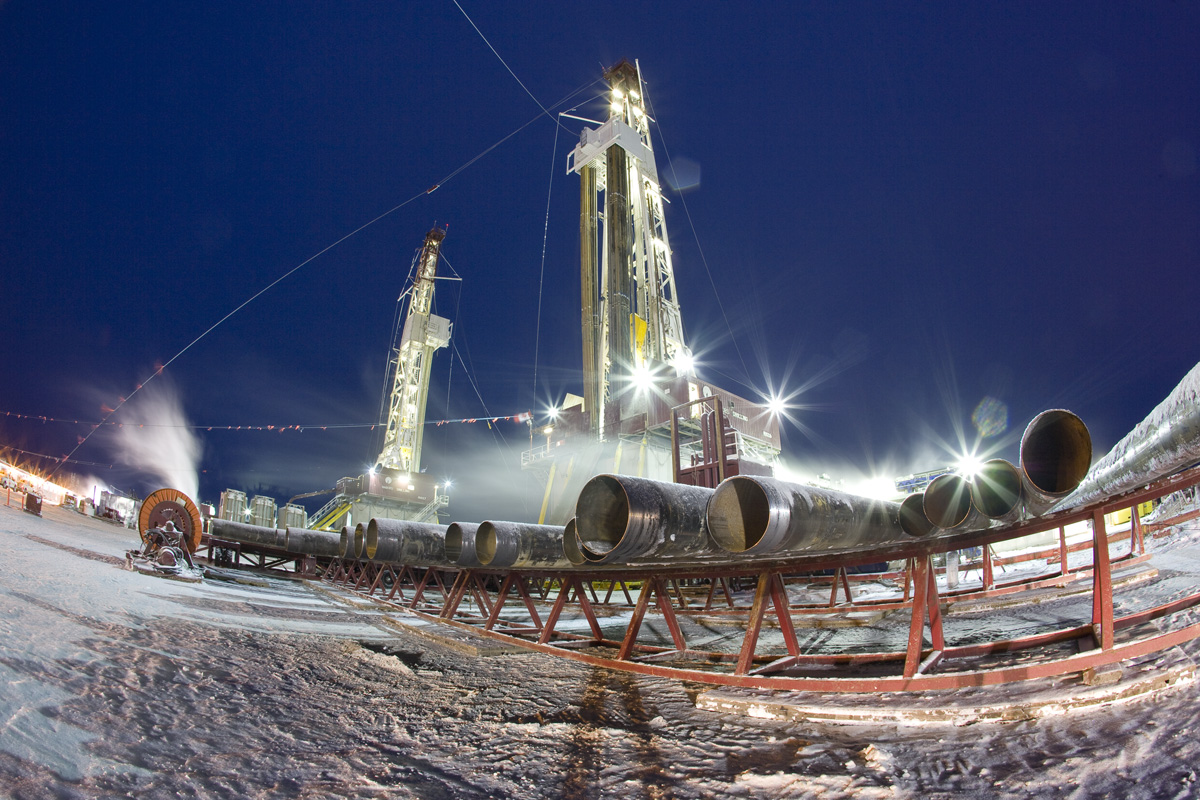
The story after the jump was written by me and James Byrne for Interfax Natural Gas Daily, a digital publication that reports on the global gas industry. The story was published on 21 August 2012 (subscribers only) and looks at the setbacks to China’s latest auction of rights to prospect for shale gas, which is a form of natural gas found in shale rock deep underground.
China is believed to have the largest recoverable reserves of shale gas worldwide, enough to last nearly 200 years at the country’s rate of gas consumption in 2011, but the method of extracting shale gas – hydraulic fracturing or ‘fracking’ – is environmentally contentious.
Read the rest of this entry »
Posted: February 1st, 2012 | Tags: business, China, Communist Party, state-owned enterprises, Sunday Times | No Comments »
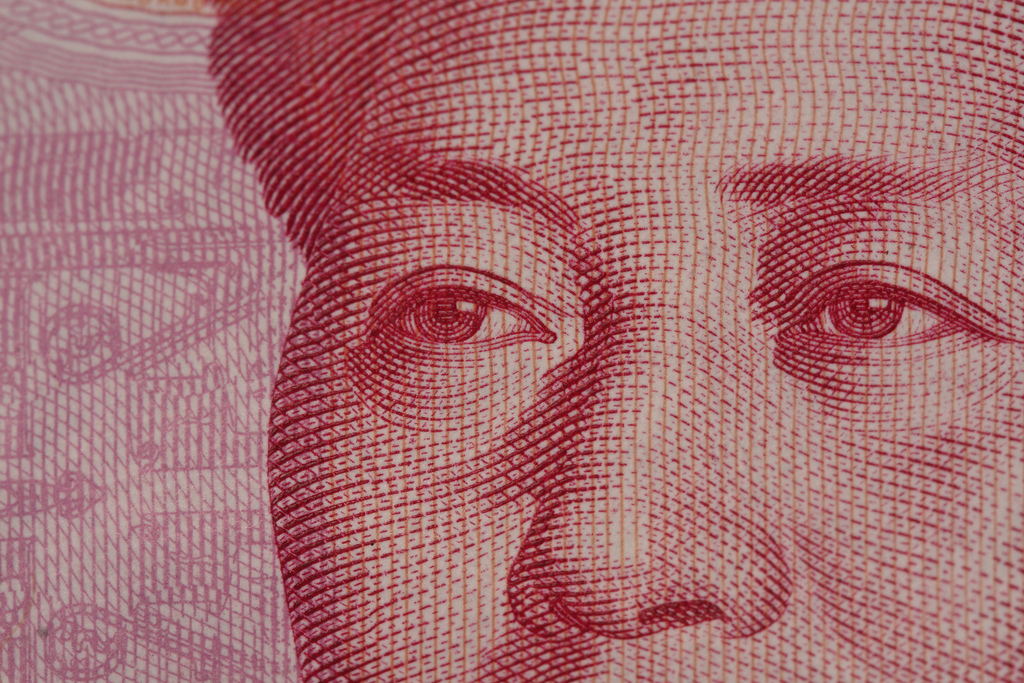
The Sunday Times published a story (paywall) on the weekend about China’s top 10 most powerful figures in the country’s state-owned business sector. The figures sit atop of a diverse range of business empires that have two major things in common: they are owned by the government, and hold a near monopoly in their industry. Several of the heads are also so-called princelings, the offspring of Communist revolutionaries that helped found modern-day China in the 1940s and whose families continue to wield enormous political power. In February 2011, Xinhua reported that the Chinese government directly controlled 121 companies worth roughly $3.65 trillion through the State-owned Assets Supervision and Administration Commission.
Read the rest of this entry »
Posted: August 14th, 2011 | Tags: China, China Central Television, media, press freedoms, Xinhua | No Comments »
As NATO continues to strike Gaddafi’s forces in Libya, behind the scenes lurks China with an altogether different show of strength. Pay attention to the microphone flags of news agencies attending this press briefing on Saturday. Read the rest of this entry »
Posted: March 8th, 2011 | Tags: China, environment, environmental journalism, Jonathan Watts, pollution, Shanghai, The Guardian, When a Billion Chinese Jump | No Comments »
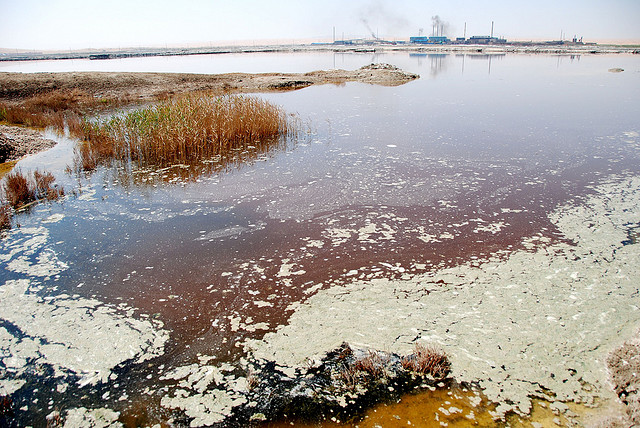
Late on in The Matrix film, there is a scene when Hugo Weaving’s Agent Smith theorises to the captured Morpheus that humans are a disease, a “cancer of this planet”. This is a tad much for Jonathan Watts, Asia environmental correspondent for the Guardian newspaper. He downgrades us to locusts instead. Read the rest of this entry »
Posted: February 20th, 2011 | Tags: 2008 milk powder scandal, China, food safety, Friso, leather milk, milk powder | No Comments »
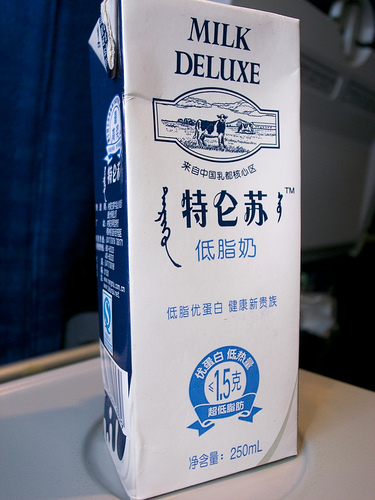
Media reports this week of a new food safety scare has dealt a fresh blow to China’s food industry. Worries over the quality and safety of food grown in the People’s Republic are nothing new. Last year alone, Chinese shoppers dealt with painted oranges and toxic cowpeas. But the new fears concern the dairy industry, which is still recovering from a scandal in 2008 that killed six children and hospitalised thousands of others. Read the rest of this entry »
Posted: January 13th, 2011 | Tags: 2008 milk powder scandal, China, food safety, Friso, milk powder, Sanlu Group | No Comments »
A “quintessentially American” menu provided the culinary anchor for last week’s state dinner between China and the U.S., the first since 1998. Maine lobster, rib eye steak, apple pie – this was classic American fare at its heartiest with ingredients undoubtedly sourced from the finest local providers.
The assured provenance and quality of the meal was probably the furthest thing from President Hu Jintao’s mind during the dinner. His compatriots back home do not have that same luxury. A series of safety scandals in the past several years have rocked consumer confidence in China’s food industry – none more so than in baby milk formula. Read the rest of this entry »
Posted: December 11th, 2010 | Tags: censorship, China, Government Leaks, Julian Assange, June 1, transparency, wikileaks | No Comments »
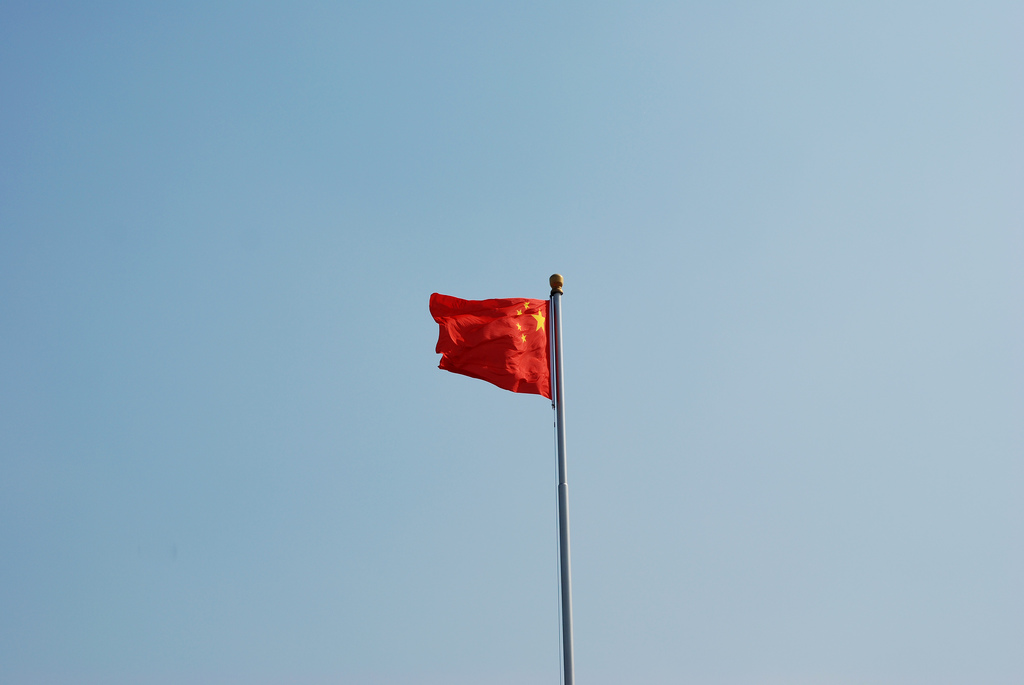
“WikiLeaks has had more scoops in three years than the Washington Post has had in 30,” tweeted media commentator Clay Shirky recently. The Afghan war logs, Iraq war logs and now #cablegate – WikiLeaks has enjoyed huge publicity this year for its muckraking leaks. Journalists like to quip that they’re not doing their job properly if somebody, somewhere isn’t angry. Judging by the U.S.’s reaction to #cablegate, WikiLeaks is doing plenty right then. Read the rest of this entry »
Posted: October 30th, 2010 | Tags: bloody map, censorship, China, citizen journalism, land dispute, press freedoms, protests, social media | 1 Comment »
In the absence of an independent media, citizen journalism and social media have thrived in China largely out of necessity. Chinese people have used the internet to report on civil and human rights abuses ignored by mainstream media. Now an anonymous Chinese blogger called Bloody Map has collated incidents of illegal land grabs and property demolitions and plotted them on Google Maps.
在较大的地图中查看血房地图公开版
The project, called 血房地图 (xuefang ditu or “Bloody Map”), charts often-violent evictions and demolitions throughout China. Read the rest of this entry »
Posted: October 10th, 2010 | Tags: anti-Japanese, China, Diaoyutai, Hong Kong, Japan, nationalism, protests, Senkaku | No Comments »
Ties between China and Japan wax and wane like the course of the sun during the day. Brief spats end as quickly as they begin and promises of better cooperation espoused by both parties leave everyone wondering what the fuss was about anyway. But the current bitterness over the Senkaku/Diaoyutai islands puts the relationship perilously close to a sunset.
Hysteria – almost all from the Chinese side – shows little sign of abating. The official rancour though masks an ugly side to the dispute. Anti-Japanese protests are sweeping Chinese cities, fuelled by ordinary citizens proud of their country’s achievements and still resentful of Japan’s wartime past. Read the rest of this entry »
Posted: October 8th, 2010 | Tags: China, human rights, Liu Xiabo, Nobel Peace Prize | No Comments »
The Nobel Committee in Oslo today awarded the 2010 Nobel Peace Prize to jailed Chinese dissident Liu Xiaobo (刘晓波). Previous winners from Asia have included Burma political activist Aung San Suu Kyi and South Korea president Kim Dae-jung.
Liu was favourite to receive the award ever since an Irish bookmaker began paying out on him days before the announcement. The human rights activist has served two out of an 11-year prison sentence for co-authoring Charter 08, a petition that called for sweeping political reform. When Liu’s odds-on status emerged, the Chinese government began applying pressure on the Nobel organisation by accusing it of hypocrisy. Awarding the prize to Liu would contravene Alfred Nobel’s founding principles, it argued. But as time ticked down towards the announcement, the government’s tone became aggressive. It warned Norway that their thriving relationship would be threatened if Liu won the prize. Read the rest of this entry »




